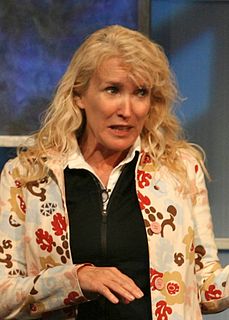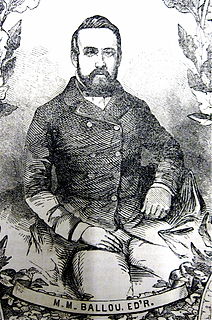A Quote by John Cowper Powys
To read great books does not mean one becomes ‘bookish’; it means that something of the terrible insight of Dostoyevsky, of the richly-charged imagination of Shakespeare, of the luminous wisdom of Goethe, actually passes into the personality of the reader; so that in contact with the chaos of ordinary life certain free and flowing outlines emerge, like the forms of some classic picture, endowing both people and things with a grandeur beyond what is visible to the superficial glance.
Quote Topics
Actually
Becomes
Beyond
Books
Both
Certain
Chaos
Charged
Classic
Contact
Does
Dostoyevsky
Emerge
Flowing
Forms
Free
Glance
Grandeur
Great
Great Book
Imagination
Insight
Life
Like
Luminous
Mean
Means
Ordinary
Ordinary Life
Outlines
Passes
People
Personality
Picture
Read
Reader
Shakespeare
Some
Something
Superficial
Terrible
Things
Visible
Wisdom
Related Quotes
I've heard people ask, What's so sacred about a classic books that you can't change it for the modern child? Nothing is sacred about a classic. What makes a classic is the life that has accrued to it from generation after generation of children. Children give life to these books. Some books which you could hardly bear to read are, for children, classic.
One of the things I do take some pride in is that if you had never read an article about my life, if you knew nothing about me, except that my books were being set in front of you to read, and if you were to read those books in sequence, I don't think you would say to yourself, 'Oh my God, something terrible happened to this writer in 1989.'
A lot of people have a fear of Shakespeare. Even actors do. People are like, "Oh, I won't go and see Shakespeare because the language is so hard," but it is. When you read it on the page, you go, "What?! What does that mean?!" If you go to a Shakespeare play and you've never been, you sit there and go, "I'm an idiot! I don't get it!"
You must find some way to elevate your act of writing into an entertainment. Usually this means giving the reader an enjoyable surprise. Any number of devices will do the job.... These seeming amusements in fact become your 'style.' When we say we like the style of certain writers, what we mean is that we like their personality as they express it on paper.
That luminous part of you that exists beyond personality - your soul, if you will - is as bright and shining as any that has ever been. Bright as Shakespeare’s, bright as Gandhi’s, bright as Mother Theresa’s. Clear away everything that keeps you separate from this secret luminous place. Believe it exists, come to know it better, nurture it, share its fruits tirelessly.
Lots of kids, including my son, have trouble making the leap from reading words or a few sentences in picture books to chapter books. Chapters are often long... 10 pages can seem like a lifetime to a young reader. Then reading becomes laborious and serious. That's why some of the chapters in my books are very short.
It’s obvious you kids are smart-school and good teachers will do that for you-but wisdom is something altogether different. Wisdom can be gathered in your downtime. Wisdom that can change the very course of your life will come from the people you are around, the books you read, and the things you listen to or watch on radio or television.
If you are reading in order to become a better reader, you cannot read just any book or article. You will not improve as a reader if all you read are books that are well within your capacity. You must tackle books that are beyond you, or, as we have said, books that are over your head. Only books of that sort will make you stretch your mind. And unless you stretch, you will not learn.
There is a world of science necessary in choosing books. I have known some people in great sorrow fly to a novel, or the last light book in fashion. One might as well take a rose-draught for the plague! Light reading does not do when the heart is really heavy. I am told that Goethe, when he lost his son, took to study a science that was new to him. Ah! Goethe was a physician who knew what he was about.
I have often wondered how anyone who does not read, by which I mean daily, having some book going all the time, can make it through life. Indeed if I were required to make a sharp division in the very nature of people, I would be tempted to make it there: readers and nonreaders of books... It is astonishing how the presence or absence of this habit so consistently characterizes an individual in other respects; it is as though it were a kind of barometer of temperament, of personality, even of character. Aside from that, for me it constituted something like sanity insurance.







































